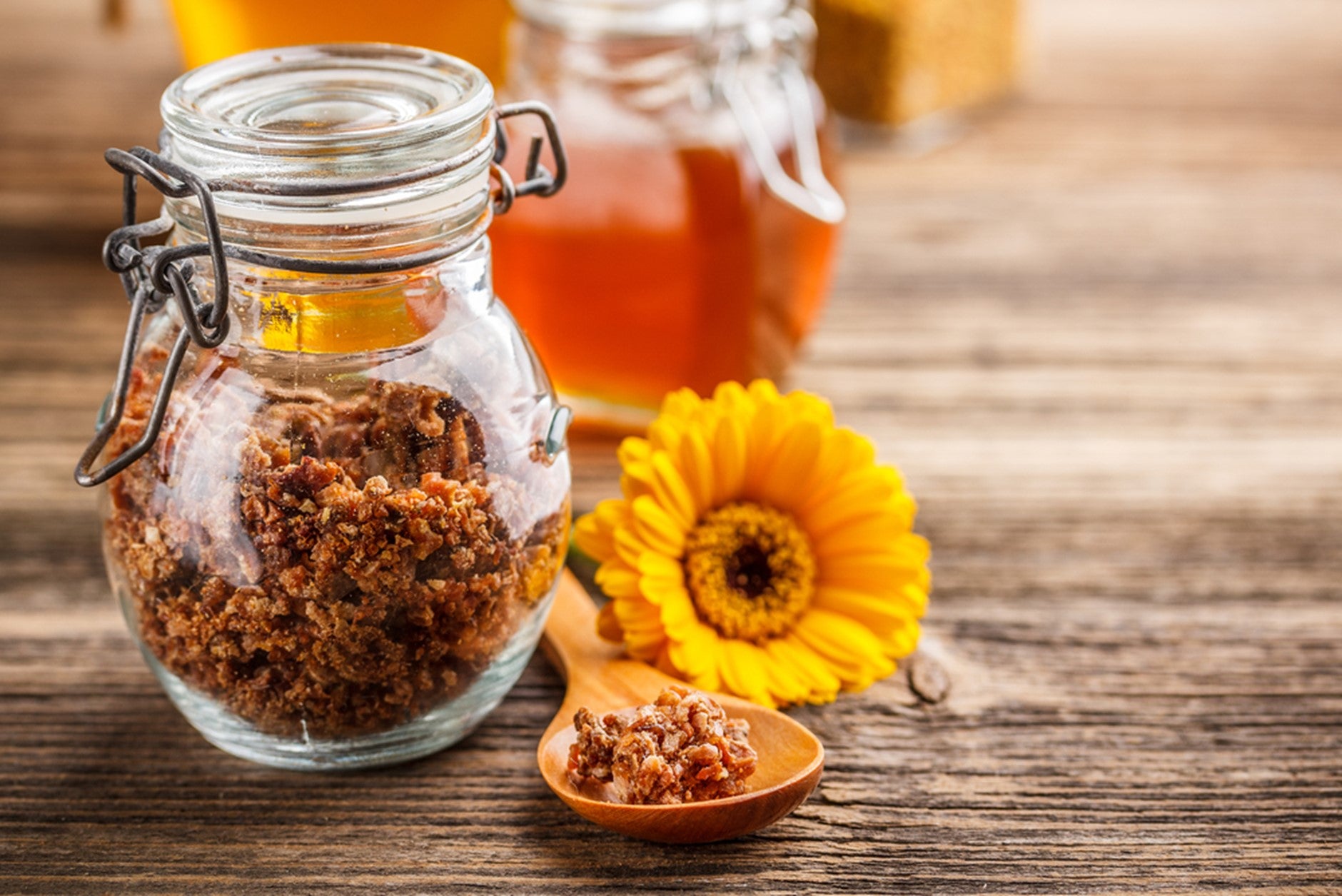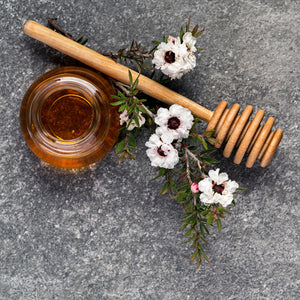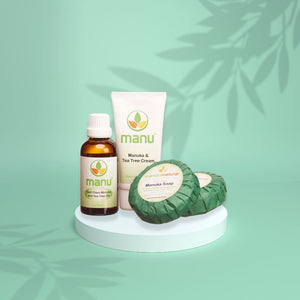
Natural Protection against Covid-19 with Propolis
According to The World Health Organisation (WHO) Covid-19 was responsible for the deaths of over 3 million people by 2021, and more since then.
Scientists have been studying methods and products that could protect our immune systems from Covid-19 infection - Severe Acute Respiratory Syndrome Coronavirus-2 (SARS-CoV-2) hereby saving thousands of lives.
Scientists are still developing more effective vaccines and drugs for COVID-19. They have also been studying medical plants, compounds that are isolated from plants, and bee products such as propolis and Manuka honey from New Zealand which have antiviral activity are used by people for preventing COVID-19 and supporting immune systems and treatment.
One natural product which holds a great deal of promise is propolis, a resinous product produced by honey bees for the protection of their hive.
Propolis consists of 50% resins, 30% bee wax, 10% aromatic and essential oils, 5% bee pollen, 5% multiple organic compounds, vitamins, and minerals.
It includes more than 300 different compounds such as flavonoids, phenolic acids, phenolic acid esters, terpenoids, xanthones, fatty acids, volatile fatty acids, ketones, lactones, steroids, pollens, various minerals, vitamins.
Propolis can be dissolved in alcohol or powdered to be encapsulated and has the following biological activities for humans such as
- antioxidant
- anti- inflammatory
- antibacterial
- antifungal
- antiviral
- antimutagenic
- antitumoral
- anticancer
- cytotoxic
- anti-proliferative
- anti-angiogenic
- immunomodulatory
Propolis has been used by Egyptians, Greeks, Romans, and Incas for wound healing for thousands of years and is now receiving renewed attention due to rTitle: Exploring the Potential of Propolis in Combating COVID-19: A Comprehensive Review of Research
In the relentless pursuit of effective treatments for COVID-19, scientists worldwide are leaving no stone unturned. Among the myriad of potential candidates, propolis, a natural resinous substance collected by bees from various botanical sources, has emerged as a promising avenue of exploration. Renowned for its diverse biological properties, propolis has long been utilized in traditional medicine for its antimicrobial, anti-inflammatory, and immunomodulatory effects. With the ongoing pandemic, researchers have turned their attention to understanding whether propolis could offer any reprieve in the battle against the novel coronavirus.
Propolis encompasses a complex mixture of compounds, including polyphenols, flavonoids, phenolic acids, and various volatile organic compounds. These constituents exhibit a wide range of pharmacological activities that may prove beneficial in combating viral infections. Early laboratory studies have shown promising results, with propolis demonstrating antiviral activity against several viruses, including influenza, herpes simplex, and respiratory syncytial virus.
In the context of COVID-19, researchers have embarked on numerous investigations to evaluate the potential efficacy of propolis. One such study published in the journal Molecules revealed that certain compounds found in propolis exhibited inhibitory effects against SARS-CoV-2, the virus responsible for COVID-19. The researchers observed that these compounds interfered with viral entry and replication, suggesting a potential mechanism by which propolis could impede the progression of the disease.
Moreover, propolis has garnered attention for its immunomodulatory properties, which could play a crucial role in mitigating the cytokine storm associated with severe COVID-19 cases. By regulating the immune response, propolis may help prevent excessive inflammation and tissue damage, thereby improving clinical outcomes in infected individuals. Additionally, its antioxidant activity may contribute to reducing oxidative stress, which is implicated in the pathogenesis of COVID-19 complications.
While these preliminary findings are promising, further research is warranted to elucidate the precise mechanisms underlying the antiviral effects of propolis and its potential therapeutic applications in the context of COVID-19. Clinical trials involving human participants are essential to evaluate its safety and efficacy in real-world settings. Additionally, researchers must explore optimal formulations and dosages to maximize the therapeutic benefits of propolis while minimizing adverse effects.
It's worth noting that propolis is not a panacea for COVID-19, and its use should be approached with caution. As with any natural remedy, quality control and standardization are paramount to ensure consistency and efficacy. Furthermore, individuals should consult healthcare professionals before incorporating propolis into their treatment regimen, especially if they have underlying medical conditions or are taking other medications.
In conclusion, the research pertaining to the effect of propolis on COVID-19 presents an intriguing avenue for exploration in the quest for effective therapeutic interventions. While preliminary evidence suggests potential antiviral and immunomodulatory properties, further studies are needed to validate these findings and ascertain the feasibility of propolis as a complementary approach in the management of COVID-19. With continued scientific inquiry and rigorous investigation, propolis may emerge as a valuable tool in our arsenal against this global health crisis.



发表评论